The Christmas protest number one you rarely hear in shops
- Published
The Flying Pickets: 'People didn't understand the name'
It's 35 years since some actors in colourful suits beat rock giants Status Quo and Slade to Christmas number one.
The Flying Pickets' Only You was even said to be a favourite of Prime Minister Margaret Thatcher.
But the a cappella group only formed as members campaigned against policies of her Conservative Party.
When they joined miners on strike the following a year, perceptions changed and some shops even stopped stocking their records.
"People didn't get it. It was quite funny really," said group member Ric Lloyd.
"Allegedly it was Thatcher's favourite song.
"And radio DJs didn't understand the significance of the name until the miners' strike the year after when they maybe had a slightly different opinion of us."
Allow YouTube content?
This article contains content provided by Google YouTube. We ask for your permission before anything is loaded, as they may be using cookies and other technologies. You may want to read Google’s cookie policy, external and privacy policy, external before accepting. To view this content choose ‘accept and continue’.
The period is referred to by historians as "a turning point" for Britain - with council houses sold and working class communities changed forever as the heavy industry dwindled and died.
Many of the group - including frontman Brian Hibbard, from Ebbw Vale - came from coalmining areas.
And when they formed, the name was a nod to how they joined picket lines with miners striking over wages in the 1970s.
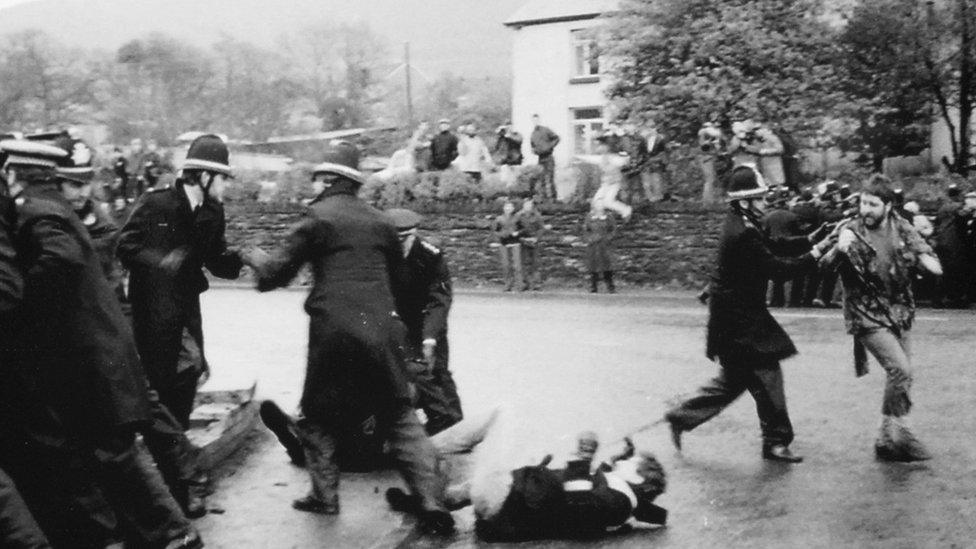
The public was split in its perception of the miners, who went on strike and were involved in sometimes violent confrontations with police
Only You was number one for five weeks - sandwiched between Billy Joel's anthem Uptown Girl and Paul McCartney's Pipes of Peace.
"It was clear what was going on around this time with Thatcher coming into power and the miners' strike following the single," Lloyd said.
"It was all kicking off. Society changed drastically with the selling off of our assets - people's things, (council) houses, businesses.
"This was a very turbulent time."

The Flying Pickets' song stayed at number one for five weeks. But some shops stopped stocking their records when they became involved in the miners' strike
For much of the century, the coal industry had been shrinking as other energy sources and better paid jobs emerged.
But it remained the lifeblood for places, such as the Rhondda Valleys.
When Only You hit the shelves, there were 174 working pits in Britain employing 148,000 people.
But following a year of strikes and clashes with police, many mines closed and the industry never recovered.
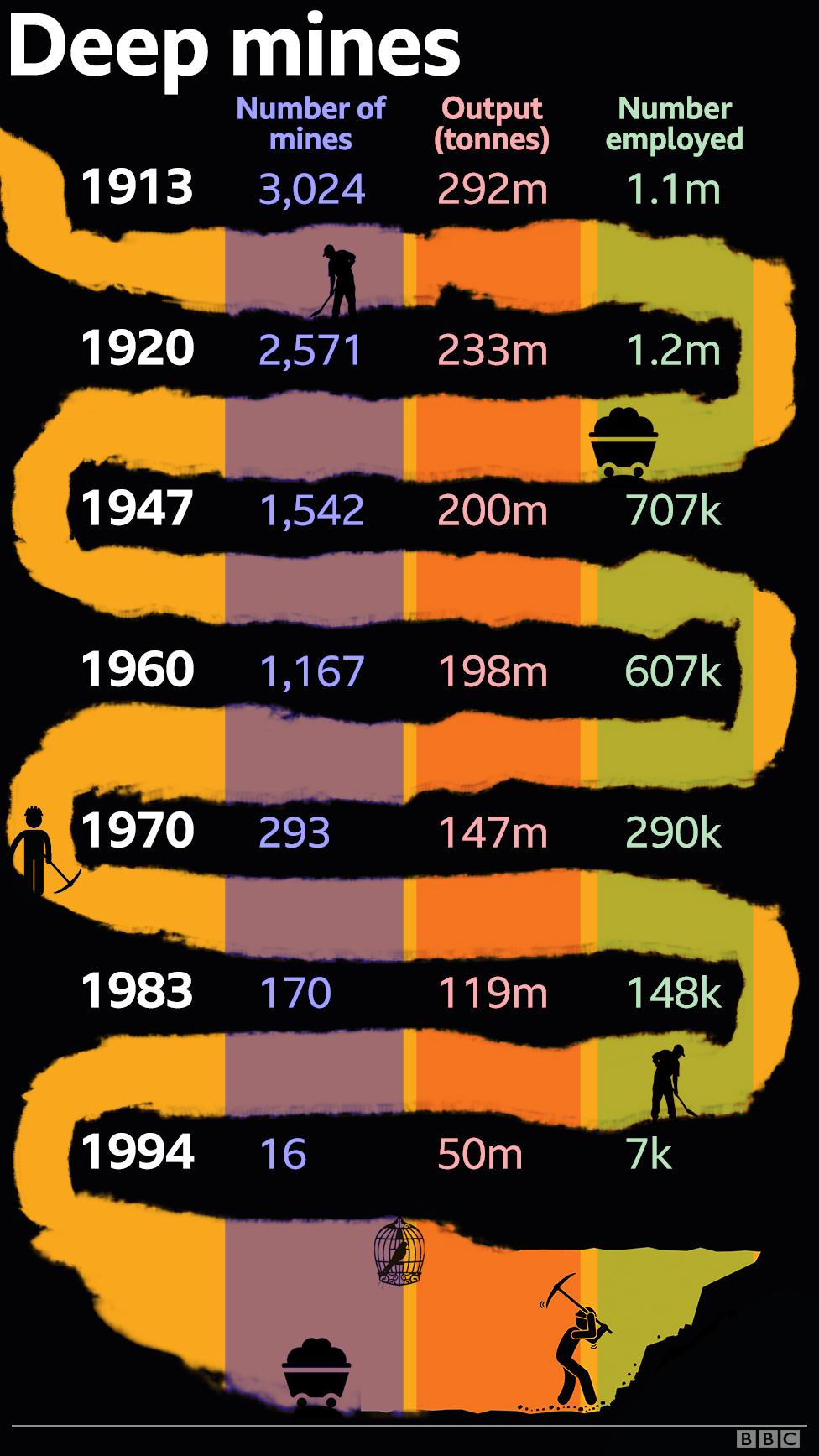
The Flying Pickets came about "by chance", said Lloyd.
He was an Aberystwyth University law student in the 1960s, whose career path changed after watching some big names perform at the Great Hall.
Lloyd later joined Y Blew - thought to be the first rock band to record in Welsh - before signing for United Artists as a songwriter.
That was when he met playwright John Burrows, who wanted him to arrange a cappella songs for the "radical, left wing, alternative" 7:84 theatre group.
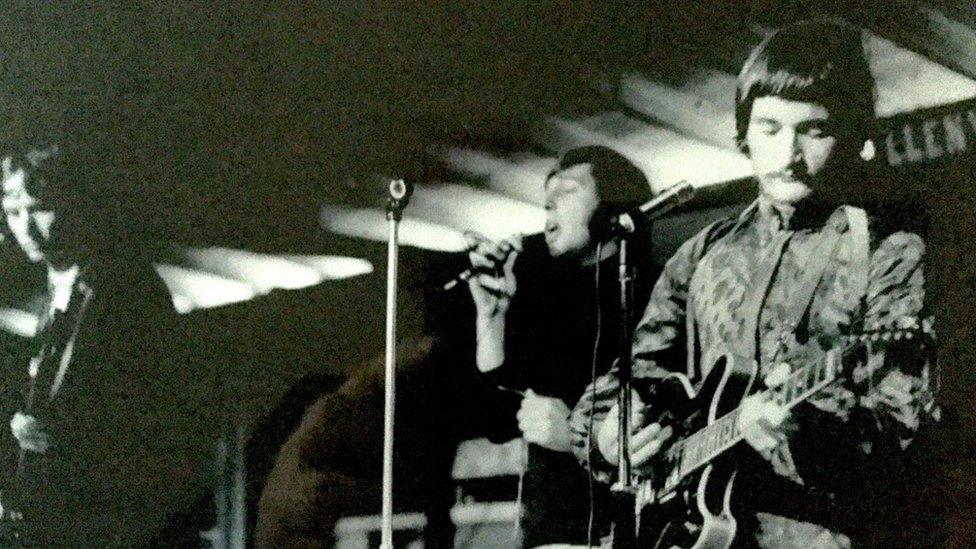
Y Blew toured for one summer in Wales and released one single - Maes B - which Lloyd said changed hands for large sums on eBay
Lloyd added: "After performances, there was a lot of travelling to the next show and singing in vans.
"It was quite organic how it then developed into other things.
"We were all actors with socialist beliefs and some music background, and it moved into alternative comedy, developing 20-minute monologues."
And when record companies realised that a cappella could offer something new to the pop music scene, a record deal followed.
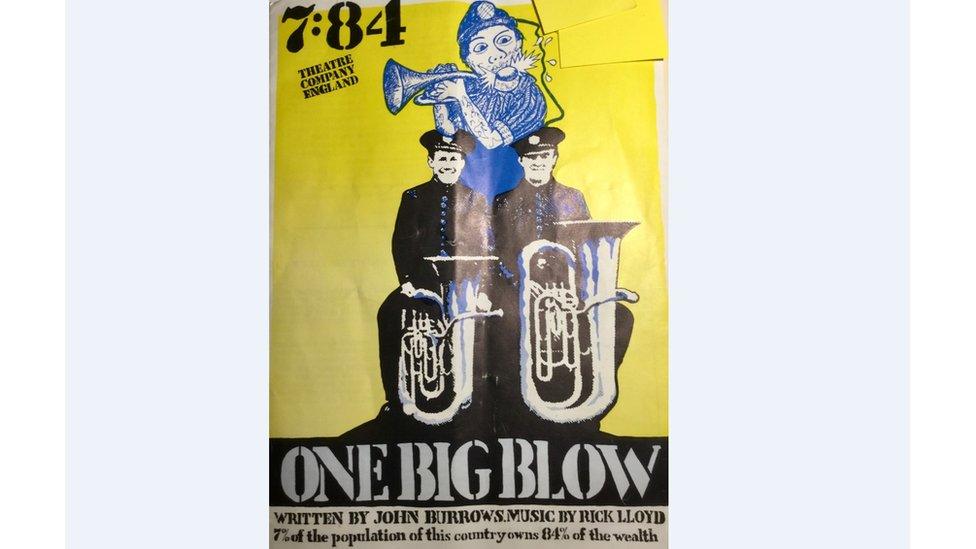
The Flying Pickets developed after playwright John Burrows asked Ric Lloyd to arrange a cappella music for a socialist theatre group
Slots supporting Dionne Warwick and an appearance on hit TV show Noel's House Party quickly gained them a large fan base.
And with momentum behind them, their cover of Yazoo's Only You saw the band easily top the festive charts.
"After the miners' strike started, certain members of the media became more aware of what the band was about and it became more of an issue," Lloyd said.
"One time, Brian and Stripe (band members) were asked to take in a Christmas present for a Saturday morning show and took in a Karl Marx tea towel.
"It was live on air and there were mass dramas and people phoning in saying 'You'll never work again'."
And while their label wanted to "pull in one direction", Lloyd said group members were focused on supporting miners with benefit gigs, which impacted on their career.

Flying Pickets frontman Brian Hibbard called the National Union of Miners as soon as the strike started and said "what do you want us to do?"
Social historian Ben Curtis said the legacy of coal mine closures could still be felt to this very day.
He said: "Parts of the valleys remain some of the most economically challenged areas in Europe."
Dr Curtis described the mines as the main reason people were in some places being "wiped off the map" following the strike, adding: "It was a turning point in modern British history."
Much of south Wales was shaped around coalmining, with the industry employing 250,000 at its peak in 1921.
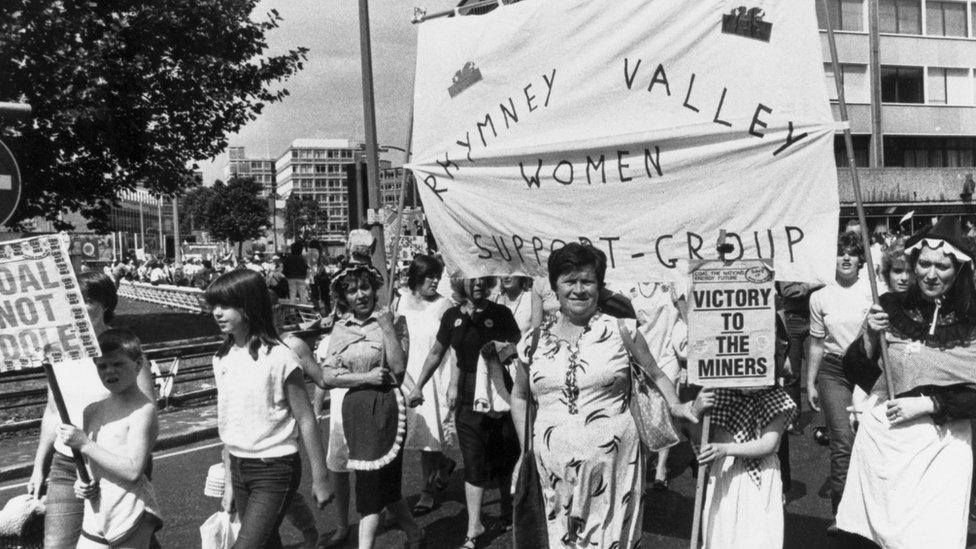
Communities campaigned to save the coalmining industry
But after overseas markets were lost following World War One, that figure halved in a decade.
However, Dr Curtis said workers believed nationalisation in 1947, when mines were brought under the control of the National Coal Board would bring stability.
But when the UK switched to other energy sources and better-paid manufacturing jobs, the workforce in south Wales dropped from 100,000 in 1960 to 40,000 by 1970.
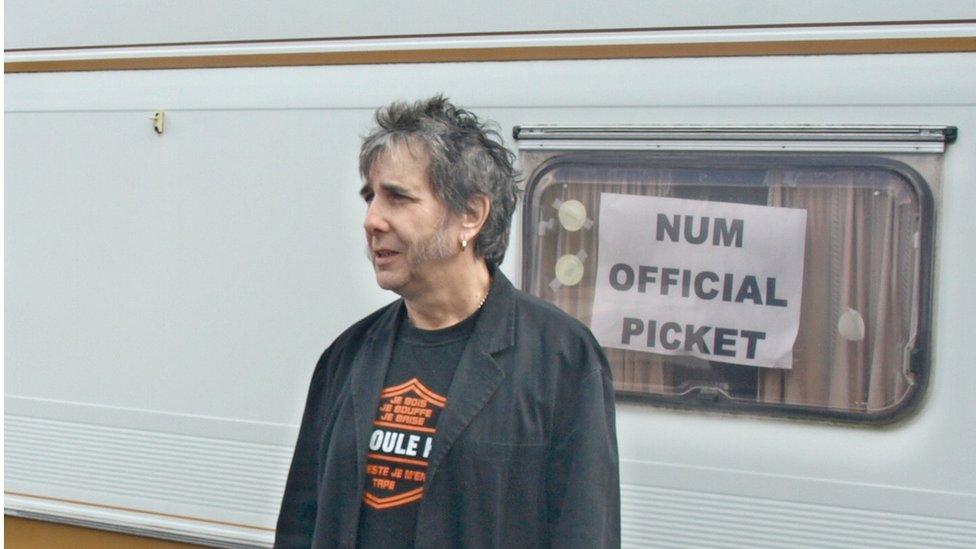
Brian Hibbard later starred in Coronation Street, Eastenders, Pobol y Cwm and Twin Town, but died in 2012 from cancer
Coal remained king in many areas, though, and when wages remained stagnant, miners went on strike in 1972 and 1974.
Five years later, free market advocate Thatcher, who was "ideologically opposed" to state-run industries such as coalmining, came into power and the closures begun.
Dr Curtis added: "Mines remained the focal point for some villages, and their closure was a mortal blow.
"For south Wales, the social fabric was lost, with other jobs linked to the mines, shops and welfare clubs closing."
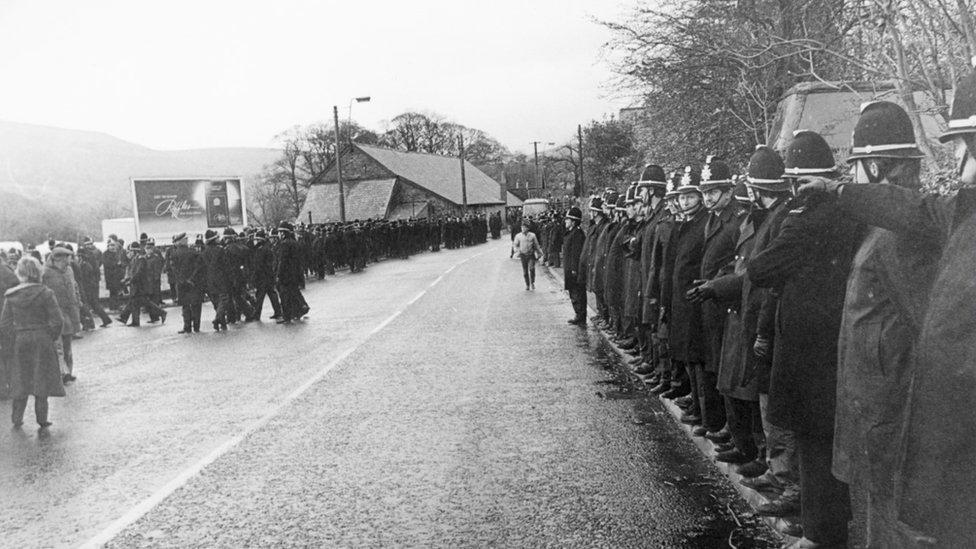
The coalmining industry never recovered after clashes during the 1984 miners' strike
Lloyd also believes the effects of the period are still being felt, saying: "I feel cynical about what's going on in society now. I feel sorry for young people.
"It's much harder now to find somewhere to live or work.
"People had a sort of golden generation (before) in many ways."
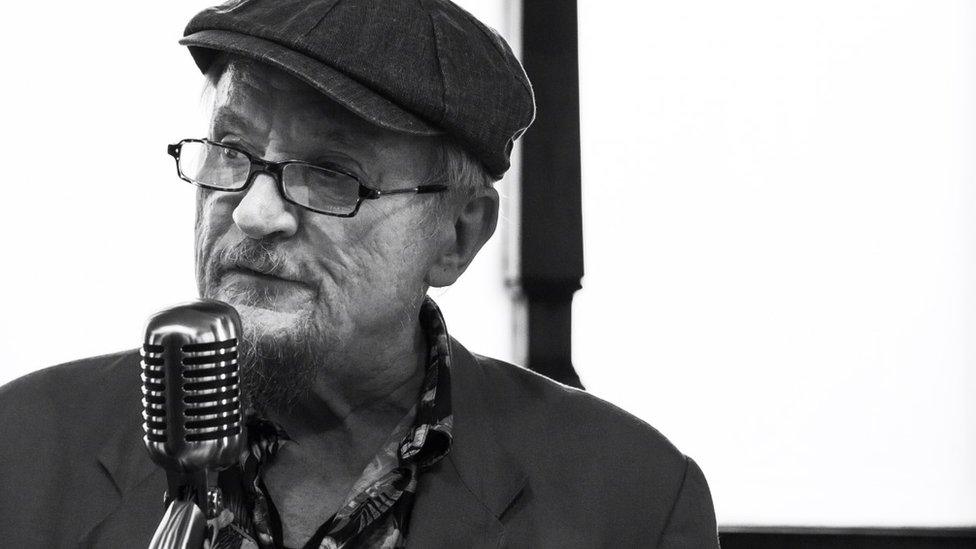
Lloyd still records music at home and performs around Ceredigion
- Published27 October 2018
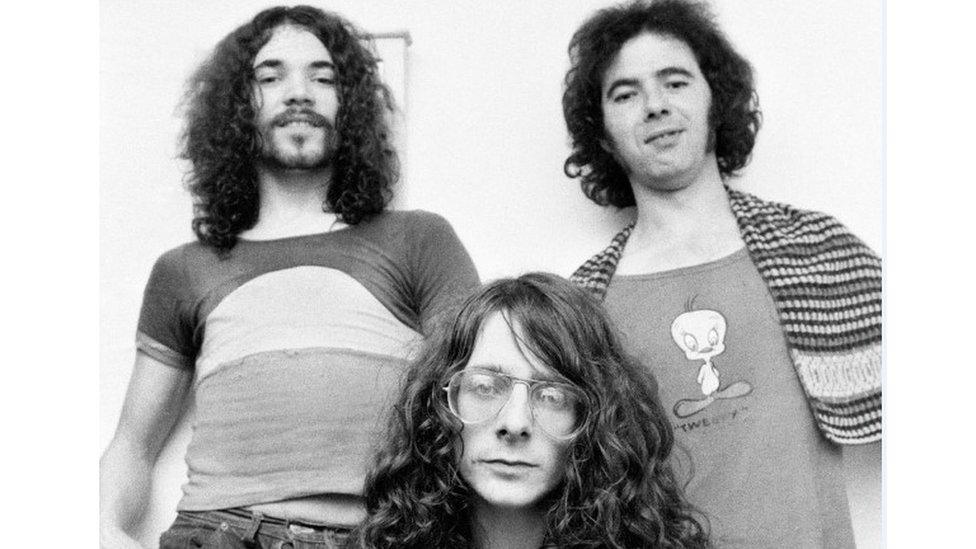
- Published26 July 2015

- Published8 May 2016

- Published21 December 2018
